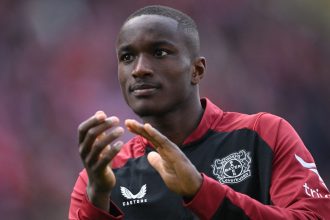The country’s first Test was a dream made possible by a lot of hard work and shrewd cricket diplomacy
Interviews by Mohammad Isam13-Mar-2017Saber Hossain Chowdhury, BCB president (1996-2001): In my first board meeting as BCB president, I said we should have a vision for our five-year tenure. I planted the idea that we should do something extraordinary. We were an Associate nation at the time, but I wanted to reach the highest level. At the time the ICC didn’t have objective criteria for a country to become a Test-playing nation. When Zimbabwe were applying for their Test status, they said that, having won the ICC Trophy thrice, if they didn’t get Test status, cricket in Zimbabwe would be dead.Ahmed Sajjadul Alam Bobby, BCB director: [The veteran journalist] Zaman had written an article once, titled “Waiting for the ninth Test” which was basically about us playing Tests. We would think about playing Tests but didn’t know when it might happen. Saber’s idea wasn’t really seen as realistic, as one former Bangladesh cricketer let him know at the time.Saber: Just after we applied for Test status, a former cricketer asked me, “Saber, is this a joke? You will never get it.” But we had the audacity to believe that it was possible.
“We had to do a lot of cricket diplomacy. I think the most important visits were to South Africa and Australia”Saber on mobilising support for Bangladesh
Saber: Moments after we had won the ICC Trophy in Kuala Lumpur in 1997, I told David Richards that we were going for Test status. He said, “I hear you.”Saber: We held the first ICC Knockout, because I knew that our on-field performances alone wouldn’t get us Test status. I told Ali Bacher and Jagmohan Dalmiya that Bangladesh is the most logical choice in terms of globalising the game.Ashraful: Saber wanted us to take a vote in the ICC meeting in 1999, but Jaggu [Jagmohan Dalmiya] thought it wasn’t a good idea. He said that Bangladesh would get only three votes – India, Pakistan and Sri Lanka. But Saber wanted to have a look, and we ended up getting five votes, with West Indies and Zimbabwe voting in our favour.What had happened was that Ian Bishop was leading a West Indies side to Bangladesh in 1999. During that series Enamul Haque Moni had taken a five-wicket haul and a few other things happened. Bishop told me that he felt we were ready for Test status. I told him, ‘Please go and tell this to Pat Rousseau [head of the WICB].’ We also had a friend in Zimbabwe’s Peter Chingoka.Bangladesh’s win in the 1997 ICC Trophy helped convince others of their rising standards•Associated PressSaber: We had to do a lot of cricket diplomacy. I think the most important visits were to South Africa and Australia. We knew that we would get help from the Asian countries and West Indies and Zimbabwe, but I needed seven votes out of the nine Full Members. I wasn’t too sure about England, so a lot of our focus went to Australia and South Africa. I did development deals between them and the BCB. Our off-field diplomacy compensated for our lack of playing standards.Ashraful: The whole board supported us. [Ahmed Sajjadul Alam] Bobby and Dr Nizamuddin Ahmed helped me put together the bid document. Soon the ICC sent inspectors – Graham Dowling, Nasim-ul-Ghani and Andy Pycroft – and they gave a good report.Cally Barlow, wife of Eddie Barlow: Eddie was contacted by the United Cricket Board of South Africa. They had heard from Saber that [Bangladesh] needed a director of cricket or coach. I can honestly say that it was one of the happiest times for Eddie and me. The Bangladeshis were so welcoming to us and so eager to learn from Eddie. It was a learning curve for Eddie, players and administrators. As with all things new, there were hiccups. Because of the monsoon, indoor facilities had to be found and we spent time in quite a few of the bigger cities looking at the old gymnasia with the idea of refurbishing them for nets.
“Just after we applied for Test status, a former cricketer said to me, ‘Saber, is this a joke? You will never get it'”
Saber: I made the 45-minute presentation, which was about all the potential and possibilities that would support our case for Test status. We were asked some questions at the end. Then it went out to a vote. We had targeted a minimum of seven votes, but we ended up getting all nine. It was a tremendous vote of confidence in the future of Bangladesh cricket. The Associates were also really happy that one of them had made it to the highest level. The mindset that cricket was a closed club could slowly go away.The whole plan worked like clockwork, despite all the obstacles in our roadmap. We needed funds to buy air tickets to attend ICC meetings in those days. But there was great teamwork within the board, so it was a privilege.It was a defining moment for Bangladesh. Cricket is more than a sport in Bangladesh: it is a platform for national unity. Cricket is a perfect uniting factor. After independence in 1971, the 1997 ICC Trophy triumph was the first time the country came together.I had a quick call with the PM, and then I called my parents. Syed Ashraful Haque was with me, while Aminul Islam was waiting outside. Then we held a press conference with the ICC president, Malcolm Gray. Trying to express history in words is impossible. I think it was the greatest moment of my life.Jagmohan Dalmiya (left), the ICC president at the time, was a key supporter of Bangladesh’s case•Getty ImagesBobby: After we got the Test status, our focus was on hosting the inaugural Test. We wanted there to be no gaps in our organisation. Only when the umpires, David Shepherd and Steve Bucknor, arrived, did we really start believing that, yes, it is going to happen in Dhaka. There is no looking back now.Sarwar Imran, Bangladesh coach: I became coach in May 2000, before the Asia Cup, when we didn’t have Test status. Eddie Barlow had become ill, so I was given the job. Then I also took the team to Kenya for the ICC Knockout tournament but still I wasn’t sure who would be the coach for the Test match.I think it was a toss-up between myself and Dipu Roy Chowdhury, but when it was decided I would be the coach, I only had the South African physio Gavin Benjafield with me, during the training camp. I was doing the work for batting, bowling and fielding, not like these days when you have specialists.
“I can honestly say that it was one of the happiest times for Eddie and me. The Bangladeshis were so welcoming to us and so eager to learn from Eddie”Cally Barlow, wife of Eddie Barlow, who coached Bangladesh
Bobby: There was so much enthusiasm among the public. Around midnight on the eve of the game, the security found 10-11 people locked inside a toilet. It was just so that they could get seats at the ground on the first day of the Test.Aminul Islam: I was stuck in the 90s for a long time. Pilot [Khaled Mashud] was at the other end. I kept thinking of recent debut-Test centurions.I was lucky to get to the milestone with one of my favourite shots – the paddle sweep. It was an unorthodox shot. The target was to keep batting as long as possible, and not [sink into] that feeling of accomplishment. It was just a great feeling.We went through several levels to our cricket – Associate level, playing ODIs and winning, and then we got to Test cricket. It was a journey from Associate status to becoming a Test team.Habibul Bashar’s batting encapsulated Bangladesh’s cricket philosophy, according to board secretary Syed Ashraful Haque•Associated PressCally Barlow: As you can imagine, it was a hothouse in the dressing room. Everyone was so excited to be playing their first Test. I was in the press box, and one of the men asked me how many runs Bangladesh would make. I said I hoped for 300 but 400 was on the cards. He looked at me in amazement but imagine his face when they did indeed get 400 on the dot. Then, somehow, the wheels fell off.Imran: I was confident, since we had nothing to lose against India. But by the third day, people were planning to win the game after India lost seven wickets and were 34 runs behind us. I always thought that we should have aimed to bat out for a draw, but then we were bowled out for 91 in the second innings. But I still thought we batted well in the first innings.Ashraful: In a mid-game interview, Tony Greig asked me about the philosophy of Bangladesh cricket. I told him Habibul Bashar is our philosophy. He had smashed a half-century [44 not out] by lunch. So I said, this is our philosophy, to entertain the crowd.See, I never thought Bangladesh would have ODI or Test status in my lifetime. But now we are going to play our 100th Test. It shows that anything can be achieved if you have the right intention.






